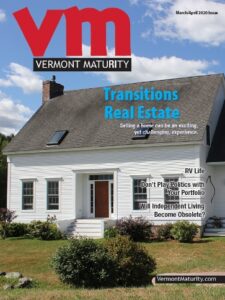
If you know where to look, there’s quite a bit of financial assistance out there that can help working baby boomers and retirees go back to school. Here are some steps to take that can help you find it.
Fill out the FAFSA Form
A good place to start is by filling out the Free Application for Federal Financial Aid (FAFSA). This will help you learn about grants, federal student loans (which are a better option than private student loans), even work-study jobs. But, be aware that for most types of federal financial aid you will need to be enrolled at least half time in a degree or academic program to be eligible. To learn more or to fill out an application online, visit fafsa.gov. Or call 800-433-3243 and request a paper FAFSA.
Search for Scholarships
While most scholarships are aimed at traditional undergraduates, there are a number of national and local scholarships offered specifically to older, non-traditional students. To find them try fastweb.com and scholarships.com. Both sites will prompt you to enter your birth date to find ones that are age appropriate.
Contact Financial Aid Officer
Call the financial aid office at the college or university that you plan to attend to see if they offer any other financial aid options you may be eligible for. Also, find out if they offer any special tuition waivers or discounts for students over age 50. Many community colleges and some four-year colleges offer discounted tuition rates and many allow older students to audit courses for free.
Seek a Tax Break
Uncle Sam may also be able to help you with a tax credit, like the annual $2,500 American Opportunity Tax Credit, or the Lifetime Learning Tax Credit, which is worth up to $2,000 per year. Or, if you’re not eligible for the tax credits, the government also provides tuition and fees deductions for students that can cover up to $4,000 in expenses.
To learn more, visit the IRS’s Tax Benefits for Education Information Center at irs.gov – type in “tax benefits for education” in the search bar to find it. Or call 800-829-3676 and request a copy of IRS Publication 970: Tax Benefits for Education (irs.gov/pub/irs-pdf/p970.pdf).
Open a 529 Account
If you don’t plan to go back to school right away, you should consider opening up a 529 college-savings plan for yourself (see Savingforcollege.com). Available in every state, 529s allow you to save money for college tax-free. And in many states you can even deduct part or all of your contribution on your state tax return.
Sign up For a Free or Low Cost MOOC
That’s the acronym for the popular “Massively Open Online Courses,” which offers thousands of certificate and no-certificate courses by the best universities around the world. MOOCs offer free or cheap ways to learn from their instructors anytime, anywhere. See mooc-list.com to search for courses.
Consider Lifelong Learning
If you’re interested in taking classes just for fun, consider Lifelong Learning Institutes (LLIs). These are noncredit educational programs designed for retirees that involve no tests or grades, just learning for the pure joy of it. Usually affiliated with colleges and universities, LLIs offer a wide array of courses in such areas as literature, history, religion, philosophy, science, art and architecture, finance, computers and more.
To find an LLI, call your closest college or search the websites of the two organizations that support and facilitate them—Osher (osher.net) and Road Scholar (roadscholar.org). Together they support around 500 LLI programs nationwide. Contact the Osher Lifelong Learning Institute at the University of Vermont at 656-2085.
Jim Miller publishes the Savvy Senior, a nationally syndicated column that offers advice for Boomers and Seniors.
 Related Articles & Free Subscription
Related Articles & Free Subscription
10 Things Medicare Doesn’t Cover
Important Legal Documents All Seniors Should Have





Comment here